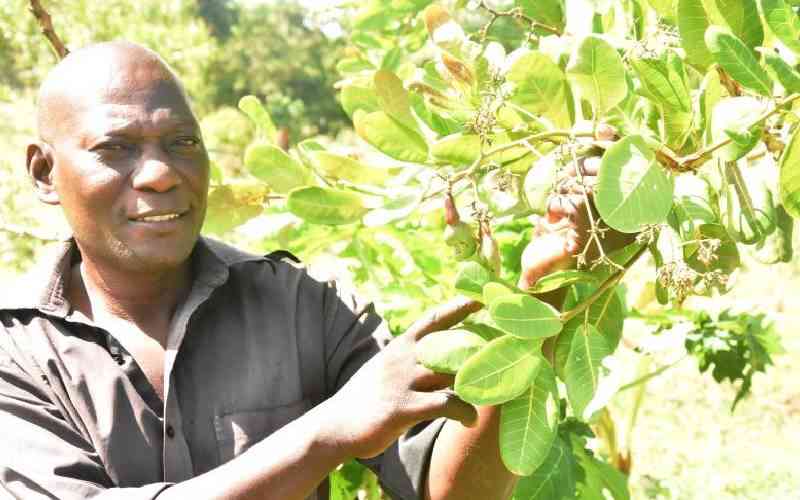×
The Standard e-Paper
Kenya’s Boldest Voice

Bernard Nzaro tends to his cashew nut crops at his farm in Tezo, Kilifi County. [Marion Kithi, Standard]
The government has announced a five-year plan to revive the coconut and edible nut sector at the Coast in a bid to reduce the importation of edible oil currently costing the country an estimated Sh120 billion annually.